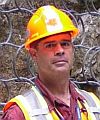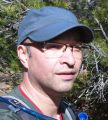Parksville 2019 on YouTube > The Whole-System Approach – “The City of Parksville recognizes the importance of sharing a vision in order to get things done; and commends the Symposium organizers for recognizing the power of partnership and collaboration,” stated Mayor Ed Mayne when he welcomed delegates to Parksville (April 2019)

“We are just seeing the tip of the iceberg as far as where water is going to be going over the coming years. We have to start turning this situation around NOW. Not in 5 years. Not in 10 years. It needs to start today. We need to start making things better,” stated Mayor Ed Mayne. “Operation of the Englishman River Water Service is guided by the mission statement which reads: An environmentally sensitive use of water to improve fish habitat and domestic water supply. At a time when the climate is changing, it is a delicate balancing act to achieve both outcomes when summers are getting longer and much drier.”










